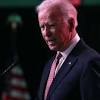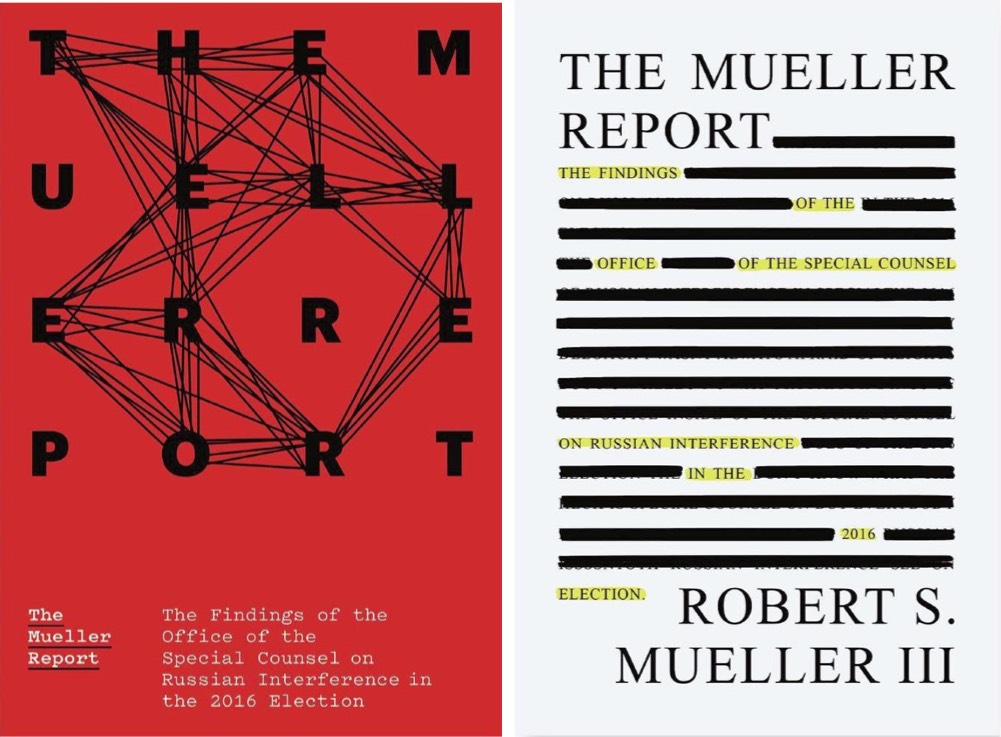7:34 AM 4/5/2019 - The New York Times: "Capitalism Needs To Be Reformed!"
- Get link
- X
- Other Apps
7:34 AM 4/5/2019 - The New York Times: "Capitalism Needs To Be Reformed!"



Trump Investigations News In Brief
Trump - YouTube Playlist | Trump News TV |
Michael Novakhov - SharedNewsLinks℠





Iowa's Socialists Are Already Over 2020
The Atlantic-55 minutes ago
But for the card-carrying Democratic Socialists I met in Iowa, those old .... And they've already set their sights on a few other 2020 targets, ...
Four years after Bernie Sanders' 2016 success, young democratic ...
CNN-Mar 13, 2019
Iowa City, Iowa (CNN) On a balcony looking down on Sen. ... of Iowa Democrats and another for the Young Democratic Socialists of ... Now its signature red rose hung, literally, over the 2020 Democratic presidential primary.
'Real concerns': Democrats' lurch left has big donors sitting on the ...
International-Washington Times-Mar 11, 2019
International-Washington Times-Mar 11, 2019
Biden, Sanders lead in poll of likely Dem caucusgoers in Iowa
The Hill-20 hours ago
Biden, Sanders lead in poll of likely Dem caucusgoers in Iowa .... Iowa and most likely caucus goers have already formed opinions on the two ... Likewise, 17 percent said they prefer a candidate who identifies as a “democratic socialist. ... to nominate a person of color or a woman to take on Trump in 2020.
Read the whole story
· ·
Web results
49 mins ago - Iowa's Socialists Are Already Over 2020. They see socialism as a vehicle for changing their own immediate circumstances—and they want to ...
Mar 10, 2019 - Des Moines Register. SUBSCRIBE NOW99¢ per month. ... Iowa Poll: Most likely Democratic caucusgoers would be satisfied with a president candidate who leans toward socialism. Robin Opsahl ..... In an interview over the weekend, Warren also made clear she is neither a Democratic socialist or a centrist.
6:26 AM 4/5/2019 - Trump Investigations News In Brief
_________________________________________________
Trump Investigations News In 250 Brief Posts
Trump Investigations News In Brief
Trump - YouTube Playlist | Trump News TV |
Michael Novakhov - SharedNewsLinks℠
Trump Investigations News In 250 Brief Posts
-
» "wilbur ross" - Google News: The Note: 'Mayor Pete's' rise a reminder of how little we know about 2020 - ABC News
05/04/19 06:03 from Trump Investigations from Michael_Novakhov (32 sites)
The Note: 'Mayor Pete's' rise a reminder of how little we know about 2020 ABC News A top tier of candidates that involves South Bend, Indiana Mayor Pete Buttigieg is not a scenario any Democrat would have predicted even a mo...
05/04/19 06:03 from Trump Investigations from Michael_Novakhov (32 sites)
The Note: 'Mayor Pete's' rise a reminder of how little we know about 2020 ABC News A top tier of candidates that involves South Bend, Indiana Mayor Pete Buttigieg is not a scenario any Democrat would have predicted even a mo...
» "wilbur ross" - Google News: Forums, facts and fundraising: Here's the weekly roundup of the potential 2020 field - ABC News
05/04/19 06:03 from Trump Investigations from Michael_Novakhov (32 sites)
Forums, facts and fundraising: Here's the weekly roundup of the potential 2020 field ABC News Presidential candidates are beginning to share first quarter fundraising numbers. "wilbur ross" - Google News
05/04/19 06:03 from Trump Investigations from Michael_Novakhov (32 sites)
Forums, facts and fundraising: Here's the weekly roundup of the potential 2020 field ABC News Presidential candidates are beginning to share first quarter fundraising numbers. "wilbur ross" - Google News
» 1. Trump from Michael_Novakhov (196 sites): "trump electorate" - Google News: Iowa’s Socialists Are Already Over 2020 - The Atlantic
05/04/19 06:00 from Trump Investigations from Michael_Novakhov (32 sites)
Iowa’s Socialists Are Already Over 2020 The Atlantic They see socialism as a vehicle for changing their own immediate circumstances—and they want to build a movement that transcends electoral politics. "trump electorate" - G...
05/04/19 06:00 from Trump Investigations from Michael_Novakhov (32 sites)
Iowa’s Socialists Are Already Over 2020 The Atlantic They see socialism as a vehicle for changing their own immediate circumstances—and they want to build a movement that transcends electoral politics. "trump electorate" - G...
» 1. Trump from Michael_Novakhov (196 sites): "trump russian money" - Google News: Swedbank’s Chairman Quits Amid Money-Laundering Scandal - New York Times
05/04/19 05:56 from Trump Investigations from Michael_Novakhov (32 sites)
Swedbank’s Chairman Quits Amid Money-Laundering Scandal New York Times The chairman of the Swedish bank resigned a week after the chief executive was fired, as the U.S. financial authorities investigate possible money launde...
05/04/19 05:56 from Trump Investigations from Michael_Novakhov (32 sites)
Swedbank’s Chairman Quits Amid Money-Laundering Scandal New York Times The chairman of the Swedish bank resigned a week after the chief executive was fired, as the U.S. financial authorities investigate possible money launde...
» 1. Trump from Michael_Novakhov (196 sites): "Do mass shootings increase trump election chances?" - Google News: Video: Dinesh D'Souza Blames Black and Latino Nationalism for Rise of White Nationalism—'There's a Toxic Side to It' - Newsweek
05/04/19 05:42 from Trump Investigations from Michael_Novakhov (32 sites)
Video: Dinesh D'Souza Blames Black and Latino Nationalism for Rise of White Nationalism—'There's a Toxic Side to It' Newsweek D'Souza claimed the Democratic Party "created white nationalism, and in a sense they've also creat...
05/04/19 05:42 from Trump Investigations from Michael_Novakhov (32 sites)
Video: Dinesh D'Souza Blames Black and Latino Nationalism for Rise of White Nationalism—'There's a Toxic Side to It' Newsweek D'Souza claimed the Democratic Party "created white nationalism, and in a sense they've also creat...
» "bank of Cyprus" - Google News: Non-resident deposits drop, as Cyprus adopts stricter AML policies - Cyprus Mail
05/04/19 05:24 from Trump Investigations from Michael_Novakhov (32 sites)
Non-resident deposits drop, as Cyprus adopts stricter AML policies Cyprus Mail Non-resident bank deposits registered a 13 per cent drop in 2018 as a result of stricter anti-money laundering (AML) policies adopted by the bank...
05/04/19 05:24 from Trump Investigations from Michael_Novakhov (32 sites)
Non-resident deposits drop, as Cyprus adopts stricter AML policies Cyprus Mail Non-resident bank deposits registered a 13 per cent drop in 2018 as a result of stricter anti-money laundering (AML) policies adopted by the bank...
» 1. Trump from Michael_Novakhov (196 sites): "russian organized crime in us" - Google News: OCCRP: Phone records raise questions about official investigation into Ukrainian activist's murder | KyivPost - Ukraine's Global Voice - Kyiv Post
05/04/19 05:19 from Trump Investigations from Michael_Novakhov (32 sites)
OCCRP: Phone records raise questions about official investigation into Ukrainian activist's murder | KyivPost - Ukraine's Global Voice Kyiv Post Editor's Note: The following is an investigation by Slidstvo.Info, a Ukrainian ...
05/04/19 05:19 from Trump Investigations from Michael_Novakhov (32 sites)
OCCRP: Phone records raise questions about official investigation into Ukrainian activist's murder | KyivPost - Ukraine's Global Voice Kyiv Post Editor's Note: The following is an investigation by Slidstvo.Info, a Ukrainian ...
» 1. Trump from Michael_Novakhov (196 sites): "trump electorate" - Google News: What Should We Make of Joe Biden? - Politico
05/04/19 05:06 from Trump Investigations from Michael_Novakhov (32 sites)
What Should We Make of Joe Biden? Politico Nine smart women tell us what they think of his “tactile” style, and whether it disqualifies him for a 2020 run. "trump electorate" - Google News 1. Trump from Michael_Novakhov (196...
05/04/19 05:06 from Trump Investigations from Michael_Novakhov (32 sites)
What Should We Make of Joe Biden? Politico Nine smart women tell us what they think of his “tactile” style, and whether it disqualifies him for a 2020 run. "trump electorate" - Google News 1. Trump from Michael_Novakhov (196...
» 1. Trump from Michael_Novakhov (196 sites): "trump electorate" - Google News: Matt Gorman: Why Bernie can win, but Democrats won't admit it - Fox News
05/04/19 05:05 from Trump Investigations from Michael_Novakhov (32 sites)
Matt Gorman: Why Bernie can win, but Democrats won't admit it Fox News If the Democratic primaries started today, Bernie Sanders would be the nominee. "trump electorate" - Google News 1. Trump from Michael_Novakhov (196 sites)
05/04/19 05:05 from Trump Investigations from Michael_Novakhov (32 sites)
Matt Gorman: Why Bernie can win, but Democrats won't admit it Fox News If the Democratic primaries started today, Bernie Sanders would be the nominee. "trump electorate" - Google News 1. Trump from Michael_Novakhov (196 sites)
» "Jared Kushner" - Google News: Jared Kushner was denied security permit in 2018 - The Sentinel Assam
05/04/19 05:04 from Trump Investigations from Michael_Novakhov (32 sites)
Jared Kushner was denied security permit in 2018 The Sentinel Assam Washington: The senior White House official whose security clearance was rejected last year because of concerns about foreign influence, "Jared Kushner" - G...
05/04/19 05:04 from Trump Investigations from Michael_Novakhov (32 sites)
Jared Kushner was denied security permit in 2018 The Sentinel Assam Washington: The senior White House official whose security clearance was rejected last year because of concerns about foreign influence, "Jared Kushner" - G...
Read the whole story
· · · · · · ·
Former military Chief of Staff Benny Gantz has emerged as the most serious and toughest rival to Prime Minister Benjamin Netanyahu in the upcoming Israeli national election.
His newly-established party, Kahol Lavan, has been running neck-and-neck with Netanyahu's Likud party.
Gantz, 59, is a popular former armed forces chief and a political newcomer.
He joined forces with the right-wing Moshe Yaalon, a former defence minister and the centre-left former finance minister Yair Lapid to form the new centrist Kahol Lavan party.
Here Anshel Pfeffer wrote the definitive profile of Gantz.
In late February Gantz and Yair Lapid dropped a political bombshell when they announced they would run on a joint ticket. Gantz’s Hosen L'Yisrael (Resilience for Israel) and Lapid’s Yesh Atid (There is a future) merged to become Kahol Lavan (Blue and White).
The new alliance announced the first 20 names on the Kahol Lavan slate:
Stay up to date: Sign up to our newsletter
Oops. Something went wrong.
Please try again later.
Benny Gantz, Yair Lapid, Moshe Ya'alon, Gabi Ashkenazi, Avi Nissenkorn, Meir Cohen, Miki Haimovich, Ofer Shelah, Yoaz Hendel, Orna Barbivai, Michael Biton, Chili Tropper, Yael German, Zvi Hauser, Orit Farkash-Hacohen, Karin Elharrar, Meirav Cohen, Yoel Razvozov, Asaf Zamir, Izhar Shay.
Allison Kaplan Sommer explained how Kahol Lavan’s lack of women at the top of the party highlighted Israeli politics' gender gap. Gantz has since vowed to move toward a 50-50 gender representation in his party and boasts of having the first ultra-Orthodox female lawmaker and female Druze lawmaker in his party.
On the issues
Gantz has called for pursuing peace with the Palestinians while maintaining Israel's security interests.
He has signalled he would make territorial concessions toward the Palestinians but has also sidestepped the question of Palestinian statehood. His party is also running on a platform promising to impose term limits on the prime minister (Netanyahu is seeking a 5th term), invest more in education, allow public transportation on Shabbat and enact civil marriages.
Prime Minister Benjamin Netanyahu's Likud party attacked Gantz, trying to brand him as mentally unstable and therefore unfit to serve in office.
Chemi Shalev explains how Gantz’s quintessential ‘Israeliness’ is his secret weapon against Netanyahu.
Likud Party officials decided on the move in late March, after a leaked recording of Gantz, arguing Netanyahu would like him dead, was aired on Channel 13 News. Likud since has seeked to paint Gantz as "insane, a cuckoo, mentally unstable," according to a party source.
Gantz has attacked Netanyahu for his role in the bribes-for-submarine scandal – aka Case 3000 - his campaign clearly hoped would turn the tide against Netanyahu and his “Mr. Security” image. Netanyahu seized on the alleged hacking of Gantz’s cellphone to insinuate that Gantz is no less than a security risk prone to Iranian blackmail.
The campaign aside, Gantz’s biggest obstacle to becoming prime minister however, is finding enough seats in the Knesset to form a government. The right wing bloc favors Netanyahu and is currently larger, meaning the even if Gantz’s party wins more seats than Netanyahu’s Likud, Netanyahu may still end up prime minister.
Gantz, in an attempt to silence critics, proposed a path to form a coalition government with Moshe Kahlon’s center-right Kulanu party, Moshe Feiglin’s far-right Zehut party and the ultra-Orthodox parties if he beats Likud by at least four seats in Tuesday’s election, sources in Kahol Lavan said a week before the election.
Gantz insists that another government headed by Benjamin Netanyahu would only last eight months until the prime minister is indicted in the corruption cases against him, the sources said. The attorney general has already moved to indict Netanyahu, pending a hearing.
Reuters contributed to this article
Read the whole story
· · ·
Next Page of Stories
Loading...
Page 2
Pompeo, Stoltenberg deliver remarks at NATO Foreign Ministers meeting

6:15 PM 4/4/2019 - Trump Investigations News Review

Read the whole story
· · ·
Newly raised soldiers participate in a commencement parade at a military base on the outskirts of Srinagar, in India-controlled Kashmir. (AP Photo / Dar Yasin)
EDITOR’S NOTE: This article originally appeared at TomDispatch.com. To stay on top of important articles like these, sign up to receive the latest updates from TomDispatch.
It’s still the most dangerous border on Earth. Yet compared to the recent tweets of President Donald Trump, it remains a marginal news story. That doesn’t for a moment diminish the chance that the globe’s first (and possibly ultimate) nuclear conflagration could break out along that 480-mile border known as the Line of Control (and, given the history that surrounds it, that phrase should indeed be capitalized). The casus belli would undoubtedly be the more than seven-decades-old clash between India and Pakistan over the contested territory of Kashmir. Like a volcano, this unresolved dispute rumbles periodically—as it did only weeks ago—threatening to spew its white-hot lava to devastating effect not just in the region but potentially globally as well.
The trigger for renewed rumbling is always a sensational terrorist attack by a Pakistani militant group on an Indian target. That propels India’s leadership to a moral high ground. From there, bitter condemnations of Pakistan are coupled with the promise of airstrikes on the training camps of the culprit terrorist organizations operating from the Pakistan-controlled part of Kashmir. As a result, the already simmering relations between the two nuclear-armed neighbors are quickly raised to a boiling point. This, in turn, prompts the United States to intervene and pressure Pakistan to shut down those violent jihadist groups. To placate Washington, the Pakistani government goes through the ritual of issuing banning orders on those groups, but in practice, any change is minimal.
And in the background always lurks the possibility that a war between the two neighbors could lead to a devastating nuclear exchange. Which means that it’s time to examine how and why, by arraying hundreds of thousands of troops along that Line of Control, India and Pakistan have created the most perilous place on Earth.
How It All Began
The Kashmir dispute began with the birth of the kicking twins—Hindu-majority India and Muslim-majority Pakistan—as independent countries. They emerged from the belly of the dying British Raj in August 1947. The princely states in British India were given the option of joining either of the new nations. The dithering Hindu ruler of Muslim-majority Jammu and Kashmir (its full title) finally signed a legally binding instrument of accession with New Delhi after his realm was invaded by armed tribal raiders from Pakistan. This document offered that state’s citizens the chance to choose between the two countries once peace had been restored. This has not happened so far and there is no credible prospect that it will.
After the 1947–48 Indo-Pakistani War that followed independence, India was left in control of almost two-thirds of the princely state (18 percent of which it lost to China in the Sino-Indian War of 1962). Crucially, the 45 percent of the former princely state that remained in its hands included the Vale of Kashmir. Guarded by snow-capped mountain peaks, covered with verdant forests of fir and pine, carpeted by wild flowers in the spring, and irrigated by the Jhelum River, it has been described by poets and others as “paradise on Earth.” Its population of seven million is 96 percent Muslim. And it is this territory that is coveted by Pakistan.
In 1989, having secured the withdrawal of the Soviet army from Afghanistan after a 10-year struggle, some of the Afghan Mujahedin (“Holy Warriors”), including Pakistani militants, turned their attention to liberating Indian-controlled Kashmir. In this, they had the active backing of the powerful Inter-Services Intelligence directorate, or ISI, of Pakistan’s army. Earlier, the ISI had acted as the conduit for channeling US and Saudi-supplied weapons and cash to the Mujahedin coalition.
At that time, the two Pakistani groups in the Mujahedin coalition, which always harbored an anti-Indian agenda, emerged front and center. They were the Jaish-e Mohammad (Army of Mohammad) and Lashkar-e-Taiba (Army of the Righteous), led respectively by Masoud Azhar and Hafiz Saeed. Working with those Kashmiris who wanted their state to secede from India, they soon began to resort to terrorist acts.
The Indian government responded with draconian measures. In July 1990, it passed the Armed Forces (Jammu and Kashmir) Special Powers Act, or AFJKSP, a law that authorized the state government to declare any part of Jammu and Kashmir a “disturbed area,” where the Indian army would be free to shoot anyone acting in contravention of “any law” or in possession of a deadly weapon. Indian forces could now arrest people suspected of committing any offense without a warrant or enter and search any premises to make such arrests. In other words, from then on, the armed forces had carte blanche legal immunity to do whatever they wished without the slightest accountability.
Yet resistance to Indian rule did not subside. In fact, the slogan “Azadi” (Freedom) caught on, emboldening both terror groups to jointly launch an audacious attack on the Indian Parliament building on December 20, 2001, with the aim of taking lawmakers hostage. (They were bravely blocked by armed guards.) In the crisis that followed, the mobilized armies of the two neighbors, each already a declared nuclear power, faced off across their international border and the Line of Control in Kashmir. Pressured by Washington, Pakistani President Pervez Musharraf banned the two terror organizations in January 2002. Yet both of them soon resurfaced under different names.
In June 2002, at a regional conference in the Kazakh city of Almaty, Musharraf assailed then-Indian Prime Minister Atal Bihari Vajpayee for ignoring the wishes of the Kashmiri people. “The possession of nuclear weapons by any state obviously implies they will be used under some circumstances,” he stated grimly, refusing to commit his country (as India had) to a “no first use” policy on nuclear arms. Vajpayee accused him of “nuclear blackmail.” At home, however, Musharraf’s hardline stance was applauded by the militant groups.
Over the years, the crisis only deepened. In November 2008, for instance, working with the ISI, the operatives of Lashkar-e-Taiba attacked Mumbai’s landmark Taj Mahal Palace Hotel and two other inns. After a 60-hour siege, 166 people, including 28 foreigners, were dead. Despite initial denials, Pakistan would finally acknowledge that the Mumbai conspiracy was, in part, hatched on its soil, and place Lashkar-e-Taiba leader Saeed under house arrest. But no charges would be leveled against him and he would, in the end, be released.
After the Mumbai carnage, Jaish-e Mohammad’s chief, Azhar, kept a low profile for several years, only to reappear publicly in 2014, issuing fiery calls for more attacks on India (and the United States as well). In September 2016, his fighters stormed an army camp in Uri, an Indian garrison town near the Line of Control, killing 19 soldiers.
With the Hindu-nationalist Bharatiya Janata Party, or BJP, under Narendra Modi gaining power in New Delhi in 2014, repression of the Muslim separatist movement in Kashmir only intensified. Within three years, the number of security personnel—army troops, paramilitaries, border guards, federal armed policemen, state policemen, and intelligence agents—had reached 470,000 in Jammu and Kashmir, which had a population of only 14.1 million. As a result, the proportion of local Kashmiris among anti-Indian fighters only rose.
A Sensational Terrorist Attack
This February 14, a 19-year-old suicide bomber, Adil Ahmad Dar, drove a car bomb into an Indian convoy heading for Kashmir’s capital city, Srinagar. At least 40 Indian paramilitary troops were killed—the worst such attack in the troubled history of the state. Jaish-e Mohammad proudly claimedresponsibility.
After dropping out of his village school, Dar had gone to work in a neighbor’s sawmill. During a four-month-long protest sparked by the killing of a popular 22-year-old local militant leader, Burhan Wani, in July 2016, Indian troops gunned down nearly 100 protesters, while injuring 15,000, including Dar. In response, he crossed the Line of Control and joined Jaish-e Mohammad. In the wake of his suicide attack, Indian soldiers raided the home of his parents, locked them inside, and set it on fire. And so it continues in the officially “disturbed” Kashmir.
In response to the deaths of the soldiers (and keenly aware of an upcoming nationwide election), Prime Minister Modi exploited the situation for political ends. He turned popular grief into an emotive and prolonged commemoration of those military deaths. TV networks focused on the flag-draped coffins of the slain troops, while local BJP candidates followed their hearses. The cremations were telecast live, while Modi proclaimed that “the security forces have been given complete freedom. The blood of the people is boiling.”
On February 26, temporarily released from civilian control, the Indian military launched a “pre-emptive” air strike on an alleged Jaish-e Mohammad training camp near Balakot, six miles inside Pakistan’s Khyber-Pakhtunkhwa province. The last time the air forces of either country had crossed the international border was during their 1971 war.
India claimed to have killed more than 300 militants, but Islamabad reported that the Indian bombs had actually hit a totally deserted site. (This would be confirmed later by satellite analysis from the Australian Strategic Policy Institute which concluded that no damage had been done to the hilltop facility India claimed to have struck.) The next day Pakistan announced that, in a dogfight between warplanes of the two countries, an Indian fighter jet had been shot down and its pilot, Abhinandan Varthaman, captured.
India angrily demanded that he be set free immediately. On February 28, while announcing the pilot’s release during a televised address, Pakistan’s Prime Minister Imran Khan warned against miscalculation and the explosive potential for such aerial skirmishes to escalate into a wider conflict in the most dangerous environment on the planet. He said, “With the weapons you have and the weapons we have, can we afford miscalculation? Shouldn’t we think that, if this escalates, what will it lead to?”
This was a barely disguised reference to the devastating nuclear arsenals that the two South Asian neighbors now possess, with 135 nukes in New Delhi’s possession and 145 in Islamabad’s. Those arsenals are more than capable of causing havoc far beyond South Asia. It’s estimated that even a “moderate” Indo-Pakistani nuclear conflict could create a global “nuclear winter,” killing directly or indirectly up to a billion people as crops failed and starvation stalked the Earth.
Those Nuclear Arsenals
Pakistan’s arsenal now includes tactical nuclear weapons (TNWs) with “low” explosive power for battlefield use. In 2011, it tested its first one successfully. Since then, according to Professor Rajesh Rajagopalan, author of Nuclear South Asia: Keywords and Concepts, Pakistan is believed to have assembled four or five of these annually. They are to be fired from the Nasr, a short-range missile. Two successful tests of it were conducted this January.
Islamabad began producing and deploying TNWs after India adopted a “Cold Start” military contingency plan to punish unacceptable Pakistani provocations like mass-casualty terror strikes. After repeated denials, in early 2017, India’s army chief finally acknowledged the existence of the plan, involving the creation of eight division-size integrated battle groups (IBGs). Each is to consist of infantry, artillery, armor, and air support and is to be able to operate independently on the battlefield. In response to major terrorist attacks from Pakistan or by Pakistani-based groups, the IBGs are to rapidly penetrate that country at unexpected locations and advance up to 30 miles beyond the border, disrupting command-and-control networks while trying to avoid locations likely to trigger nuclear retaliation. In other words, the goal is to be able to launch an overwhelming conventional strike swiftly but in a limited fashion in order to ward off a Pakistani nuclear response. Overall, India’s contingency plan assumes unrealistically that, in the heat of the battle, leaders on both sides will remain calm and rational.
Responding to Islamabad’s production of theater nuclear weapons, New Delhi initiated a super-secret nuclear program revealed only in December 2015, thanks to an investigation by the Washington-based Center for Public Integrity. A top-secret, government-run, $100 million rare materials plant near the city of Mysore in southern India now houses a nuclear enrichment complex that has been operating since 2012. It feeds the country’s nuclear weapons program and, far more ominously, has laid the foundation for an ambitious Indian hydrogen bomb project.
To consternation in world capitals, it was also revealed that this plant has a larger twin 160 miles north of Mysore in southern India that goes by the innocuous name of the Aeronautical Test Range. Conceived in March 2007 by the defense ministry, its construction started in 2012 on nearly 13 square miles of land. It is to become the subcontinent’s largest military-run complex of nuclear centrifuges, atomic-research laboratories, and weapons- and aircraft-testing facilities after its completion in 2020. Among the project’s aims is to expand the government’s nuclear research, to produce fuel for the country’s nuclear reactors, and to help power its fleet of new nuclear submarines. This nuclear city is to be protected by a ring of military garrisons, turning the site into a virtual military facility, which also means that it will not be open to inspection by the International Atomic Energy Agency. Its overarching aim is to give the country an extra stockpile of enriched uranium fuel that could be used to create hydrogen bombs and so further enhance the power of India’s already devastating nuclear arsenal.
Both of these projects are directed by the office of the prime minister. India’s Atomic Energy Act and its Official Secrets Act have placed everything linked to the country’s nuclear program under wraps. In the past, those who tried to find out more about these activities were bludgeoned into silence.
According to Gary Samore, an Obama-era White House coordinator for arms control and weapons of mass destruction, “India intends to build thermonuclear weapons as part of its strategic deterrent against China. It is unclear when India will realize this goal of a larger and more powerful arsenal, but they will.” Once manufactured, however, nothing would block India from deploying them against Pakistan. “India is now developing very big bombs, hydrogen bombs that are city-busters,” commentedPakistani nuclear physicist Pervez Hoodbhoy. “It is not interested in [producing] nuclear weapons for use on the battlefield; it is developing nuclear weapons for eliminating population centers.”
In other words, while India has long been in a nuclear arms race with Pakistan, it is no longer sticking to the same race course. In late March, Modi announced that India recently launched a rocket successfully shooting down one of its satellites. This creates the possibility that, in a future nuclear war with Pakistan, it could preemptively “blind” the Pakistanis by destroying their space-based communication and surveillance satellites. A race of another kind could be in the offing.
The central motive that drove Pakistan to develop its nuclear arsenal, however, remains unchanged. It was the only way Islamabad could deter New Delhi from defeating it in a war waged with conventional weapons. India’s 2.14 million-strong military, equipped with 5,967 artillery pieces, 4,500 tanks, and 2,216 aircraft, is significantly larger and better armed than Pakistan’s 1.55 million soldiers, 3,745 artillery, 2,700 tanks, and 1,143 aircraft. In addition, New Delhi’s annual defense budget of $55.9 billion is more than five times Islamabad’s $10.8 billion.
Little wonder that, in his February 28 televised address, while announcing the Indian pilot’s release, Prime Minister Khan suggested that the two sides “should sit down and resolve our problems through dialogue.” He claimed that his own political party, Pakistan Tahreek-e-Insaf (the Pakistan Movement for Justice), and the country’s powerful military were “all on one page” in wishing to mend fences with India.
Pakistan’s Belated Suppression of Violent Jihadists
In late February, India handed over to Pakistan a dossier with information on Jaish-e Mohammad, its top leadership, and their involvement in several terror attacks. Islamabad initially said that the dossier was being “examined.” However, Foreign Minister Shah Mahmood Qureshi added that his government could act against Masoud Azhar only if New Delhi provided “solid, inalienable evidence” strong enough to convince the country’s judiciary.
And yet on March 8, the Pakistani government acted, launching a crackdown on leading terrorist groups. Among other things, it outlawed the Jamaat-ud Dawa (Society of the Islamic Call), or JuD, a welfare organization that raised funds for Lashkar-e-Taiba. It sealed the banned organization’s headquarters in Lahore as well as more than 200 schools, seminaries, and hospitals it ran. It also banned its chief, Hafiz Saeed, from leading Friday prayers on the sprawling JuD complex and kept him under surveillance.
One key factor that spurred such action was a warning the Pakistani government received on February 22 from the Paris-based intergovernmental Financial Action Task Force (FATF). It threatened to add Pakistan to its blacklist of non-cooperating countries if, by May, it failed to take specific steps against the financing of terrorism. To be added to the FATF blacklist could mean being sanctioned by most Western nations, a development only likely to deepen Islamabad’s current financial crisis. (Recently, it has had barely enough foreign reserves to pay for two months of imports or service a huge loan it secured from the International Monetary Fund in 2013.)
In January 2018, President Donald Trump had already canceled plans for Washington to give Pakistan $1.3 billion in military aid and had imposed sanctions on the country for its support of terrorist groups, including the Afghan Taliban. On Twitter, he accused Pakistan of “providing nothing but lies and deceit.” Soon after, the FATF placed Pakistan on its “gray list.”
Still, none of that proved sufficient to compel Pakistan’s powerful military high command to cede its traditional monopoly on national security and foreign policy decision-making, including its covert backing of anti-Indian extremist groups through the ISI. Only when pressure continued to build, bolstered by fresh urging from Washington, London, and Paris, was a critical mass reached that made those generals finally fall in line with recently elected Prime Minister Khan’s more conciliatory stance toward India.
Now, the international community can only hope that the carnage and chaos of February was the last in a tragic series of encounters between nuclear neighbors that could otherwise lead South Asia to devastation and the world to nuclear winter.
Read the whole story
· · · · · · · · · · ·
MOSCOW — Israel’s Prime Minister Benjamin Netanyahu visited Moscow today, his second trip to the Russian capital in three months. The previous visit at the end of February saw Netanyahu and President Vladimir Putin put the crisis in Russian-Israeli relations over a downed Russian plane in Syria “behind them” — the first step in getting bilateral coordination to the level desired by both leaders.
At that meeting, Netanyahu also invited Putin to Israel in May for the unveiling of a monument to the defenders of Leningrad (modern day St. Petersburg) during World War II.
This time, the conventional wisdom in Moscow had it that Netanyahu wouldn’t have traveled to Russia five days before his nation's fateful parliamentary elections had he not felt positively about the talks with Putin. With the election stakes rising and the Iranian presence in Syria apparently becoming an even bigger of a worry for Israel, Netanyahu’s three-part ploy eyed the following: to placate about a million descendants of Russian Jewish immigrants who are now voters in Israel and politically dispersed but mainly support former Defense Minister Avigdor Liberman's Yisrael Beitenu, to negotiate favorable terms for Israel’s standing in Syria, including countering pro-Iranian forces there, and to reinforce the image of one of a handful international leaders who enjoy good relations with both Trump and Putin and arguably the only one who manipulates both Russia and the United States for the benefit of his country's national security interests. The visit to Moscow may be his second biggest campaign move since his recent trip to Washington. Remarkably, Trump’s recent decision on the Golan Heights was not brought up in public deliberations of in press releases of the Putin-Netanyahu talks.
For Putin, the 13th meeting with his Israeli counterpart since December 2015 had its own significance. As Syria slowly moves into a post-war stage, he outsourced the marshy process of political settlement, return of the refugees and reconstruction to agencies within Foreign and Defense Ministries to personally focus on riskier yet more politically valuable assets: high level mediation of the Israeli-Iranian and Turkish-Syrian conundrums. President Recep Tayyip Erdogan of Turkey — yet another leader who seeks to play Russia and the United States against each other for the benefit of his country's interests — is expected in Moscow on April 8.
Putin and Netanyahu seem to be on the same page. They developed good personal chemistry and got to know one another’s psyches to the point of being able to deliver each other’s interests without exposing their metagame. Therefore, in terms of public promotion, Putin gave Netanyahu everything he coveted — and a little more.
“We highly appreciate your policy on commemorating the Red Army soldiers who fought against Nazism and who brought liberation to many people in Europe, including the Jewish people,” Putin said in his opening remarks with Netanyahu, adding that work would begin that day searching for the remains of fallen Red Army soldiers who perished while fighting in Russia.
He went on, “I believe the same fate befell Israeli serviceman Zachary Baumel, who was killed in 1982 and was considered missing in action. As you may know, our military personnel and their Syrian partners helped find Zachary’s remains. We are glad that he will receive proper military honors in his homeland. Another purely humanitarian aspect of this case is that Zachary’s family will be able to bring flowers to his grave.”
Two years ago, Netanyahu asked Putin to help recover the body of Baumel, who went missing in Lebanon 37 years ago. Now that the body has been found, Putin ceremonially presented it to Netanyahu. The Russian Defense Ministry set up a special ceremony to commemorate Baumel. Putin would claim credit for keeping his word, Netanyahu for managing to develop the kind of relationship with the Russian leader for him to risk his own servicemen — and go out of his way to have the Syrians to cooperate on the task.
“Mr. President, we are wholeheartedly grateful to you for your personal friendship, for your position and for the position of Russia, which shares these values with Israel,” Netanyahu told Putin in response.
“We would like to express our gratitude to the Russian Defense Ministry and the Russian army. We will never forget their contribution, which will go down in history,” he added, making an overture to the institution that has been critical of Israel ever since the spy jet was downed in September last year in what the Defense Ministry is still convinced was an Israeli provocation.
Yet it’s the military that will have to do the daily bilateral coordination which Russia apparently seeks to take to a new level and part of Putin’s conversation with Netanyahu. Russia and Israel have recently been in talks about updating the existing de-confliction agreement on Syria that has been in place since 2015. Following the downing of the Russian aircraft, Moscow pushed for faster notifications about Israeli strikes on suspected Iranian targets in Syria. The Russians also wanted the agreements to be written and signed instead of based on mutual trust. The Israelis, in turn, are concerned about having their wings clipped. Israeli sources who spoke with Al-Monitor not for attribution argued that in principle, Israel is not against making the agreement more legally binding, but Russia’s own attitude toward Iran remains a riddle that makes it hard to negotiate concrete terms beyond the de-confliction of Russian and Israeli forces.
In February, Putin and Netanyahu agreed to create a working group on the gradual expulsion of foreign forces from Syrian territory. But each party may see the outcome somewhat differently: For Israel, just like for the United States, the primary problem in Syria is Iran, but for Russia it’s the American presence that is seen as destabilizing. That’s not to say Moscow would resist initiatives that involve cutting down on the Iranian presence in Syria, especially in the areas where it may conflict with Russia’s own interests or create a source of geopolitical strain. Yet Moscow is unlikely to yield to the Israeli demands if they mean tipping the political and security balance in favor of the United States or threaten to upset Russia’s own work on Syria.
The idea of a comprehensive working group bringing together the Russians, Israelis, Syrians and perhaps the Americans, Iranians and Turks seeks, in the words of Putin, “to settle Syria after the ultimate suppression of all terrorist hotbeds and to have all foreign contingents depart Syria to fully restore its statehood and sovereignty.” Russia certainly doesn’t see its own presence as subject to the expulsion, given the treaty Moscow and Damascus signed in January 2017 that allows Russia to use and expand the Tartus naval facility for 49 years free of charge.
Although the Astana format showed even most incogitable compositions of actors are not impossible, the modern reality suggests that all of the outside actors getting on board is unlikely and probably unproductive at this stage. Until then, Moscow is likely to eye a separate working group for Israel, Syria and Iran and will continue to forge leverage and brainstorm incentives via bilateral dealings — the process that transcends election cycles and that may take several of them before it’s completed, if ever.
Found in: zachary baumel, russian influence in syria, russian jet, russian-israeli relations, israeli elections, benjamin netanyahu, vladimir putin
Read the whole story
· · · · ·
Next Page of Stories
Loading...
Page 3
5 key questions about what the Mueller report actually says
CNN-5 hours ago
(CNN) Over the last 24 hours, The New York Times and The Washington Post both have reported that people close to special counsel Robert ...
Some on Mueller's Team Say Report Was More Damaging Than Barr ...
Highly Cited-New York Times-18 hours ago
Highly Cited-New York Times-18 hours ago
Justice Department addresses reports that some on Mueller team ...
International-CBS News-3 hours ago
International-CBS News-3 hours ago
Mueller report more damaging to Trump than attorney general has ...
In-Depth-National Post-7 hours ago
In-Depth-National Post-7 hours ago
Republicans and Democrats are all mixed up on the Mueller report
CNN-8 hours ago
Joe Lockhart was White House press secretary from 1998-2000 in President Bill Clinton's administration. The opinions expressed in this ...
Praise for the Mueller Report, From an Unlikely Source: Oleg Deripaska
New York Times-22 hours ago
MOSCOW — The email came out of the blue, from an aide to the mysterious Russian billionaire, Oleg V. Deripaska, who is said to be close to ...
Read the whole story
· ·
Web results
4 hours ago - Washington (CNN)The Department of Justice on Thursday defended Attorney General William Barr's summary of special counsel Robert Mueller's confidential report after two newspapers said Mueller's investigators felt Barr didn't properly convey how damaging their findings were for ...







Are you in financial crisis, looking for money to start your own business or to pay your bills?, Global Loan Access is given all types of loans at low interest rate of 2% I got mine from them you can Apply now via email at: ( globalloanaccess@gmail.com )
ReplyDelete